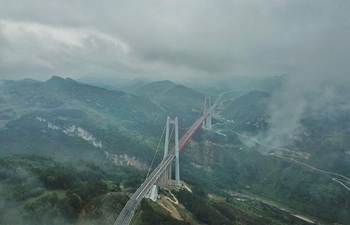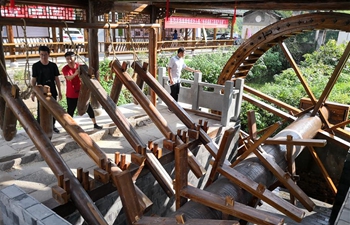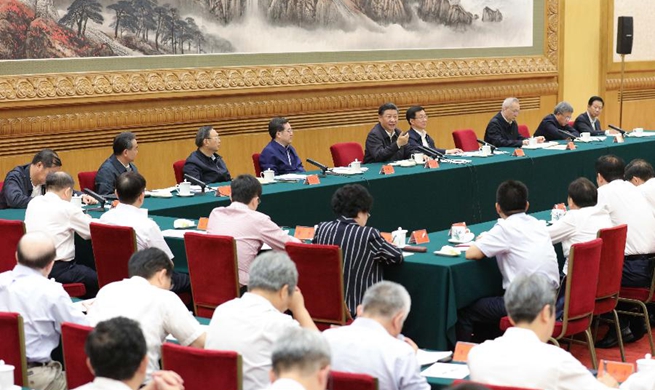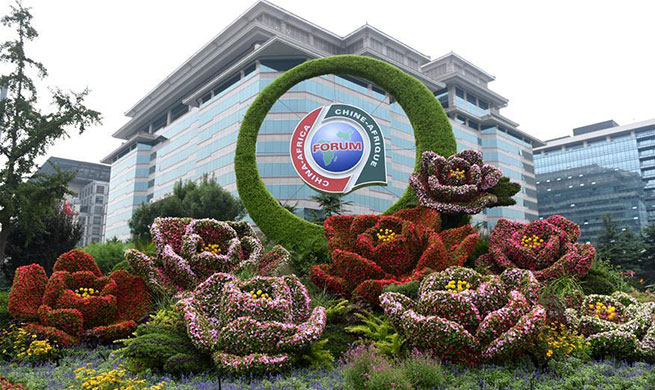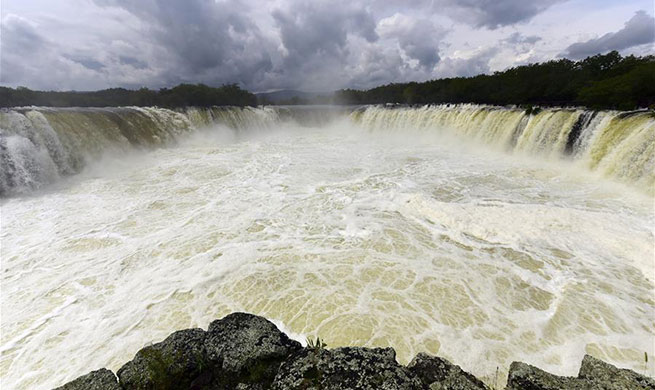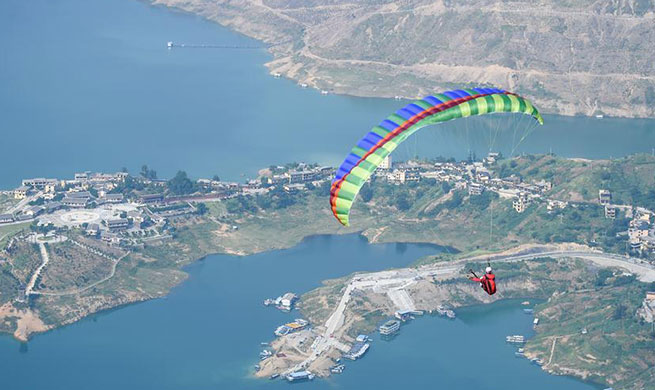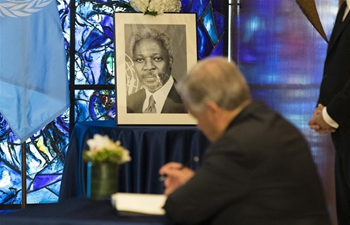MANILA, Aug. 28 (Xinhua) -- Philippine Finance Secretary Carlos Dominguez lauded anew the Belt and Road Initiative on Tuesday, saying the China-proposed initiative is a "powerful idea" that promotes interconnectivity among world economies.
The Belt and Road Initiative is really a powerful idea. It brings together a lot of major economies in the world to promote free trade and improve access to each other's markets, which is really an engine for growth, Dominguez told Xinhua in an interview.
Already, Dominguez said the Philippines has benefited from the initiative.
Regarding the cooperation between China's Belt and Road Initiative and the Philippines' Build, Build, Build infrastructure program, Dominguez said that there are more cooperation projects in the pipeline, including the Kaliwa Dam or the New Centennial Water Source project that will supply water for the Metro Manila area.
"The dam is really very significant for Metro Manila residents," he added.
He said the Philippines is now working with China for the construction of Iloilo-Guimaras-Negros Bridge in the central Philippines and the Davao-Samal bridge in southern Philippines.
"All these are about connectivity," Dominguez said.
Under the Build, Build, Build infrastructure program, the Philippine government plans to spend more than 8 trillion pesos (roughly 151 billion U.S. dollars) until 2022 into infrastructure projects such as railways, ports, roads and bridges.
Dominguez led a high-level team of Philippine government delegation that visited Beijing last week to discuss cooperation infrastructure projects in the pipeline.
"All the meetings (in Beijing) were extremely productive," Dominguez said.
Lucio Blanco Pitlo, a lecturer at the Chinese Studies Program of Ateneo de Manila University in the Philippines, also expressed optimism that Sino-Philippine cooperation will further bloom, saying the Philippines' Build, Build, Build Program can indeed benefit from China's Belt and Roald Initiative.
"I expect both sides to continue cooperation," Pitlo told Xinhua in a separate interview.
He said China had developed tremendous capacity for infrastructure, renewable energy, mechanized agriculture and manufacturing.
"Cooperation in these areas can have a transformative impact on the Philippine economy. It can ease traffic congestion and disperses development outside metropolitan areas, unlock the potentials of the countryside through more efficient farming and faster connection to markets in the cities, ensure access to clean, green and sustainable sources of energy and expand the country's manufacturing sector," Pitlo said.
He added "These will attract capital, create jobs and contribute to food and energy security".
As of July 2018, more than 100 countries and international organizations had signed Belt and Road cooperation documents with China, extending the initiative's scope from the Eurasian continent to Africa, Latin America and the Caribbean, and the South Pacific region.


